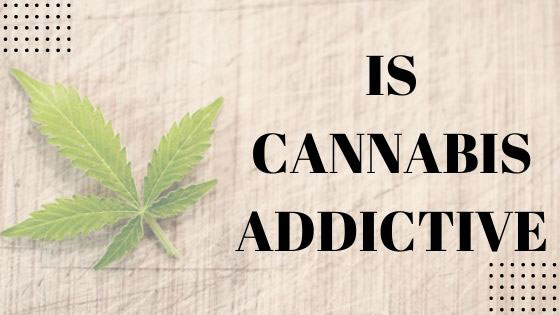Is weed addictive? Will I get hooked if I start smoking weed? That’s the million-dollar question that most of the people who have had the chance to smoke a blunt ask themselves, especially before their first puff.
If you ask the average stoner, they’ll probably say that weed isn’t addictive. A lot of stoners can buy marijuana and drop the herb whenever they want to. Some people get a change of heart after years of smoking and stop, without any significant side effects.
But, if you were to look at the science behind cannabis and cannabis addiction, you would see a completely different picture. What does this mean? Well, most people can get stoned regularly without getting addicted. It’s all about moderation. Others have a hard time doing so, and studies have found that yes, weed can be addictive. How so? Read on and find out.
Marijuana Use Disorder.
Yes, this is weed we’re talking about. How on earth could it be addictive? It’s not that simple. You see, people have for years classified cannabis as a soft drug. A lot of stoners will laugh at the idea that the mighty herb might be addictive. And who can blame them, anyway? There has been scientific research on whether or not it’s addictive, and there are numerous examples of people who’ve used weed for a lifetime without any side effects.
Well, stoners will be sad to learn that smoking weed can indeed lead to a marijuana use disorder. This condition is characterized by a dependence on the drug where users suffer from withdrawal effects whenever they don’t use cannabis. In severe cases, this dependency can morph into an addiction.
Data from research suggests that at least 30% of cannabis users have some form of marijuana use disorder. Also, people who start stoning before they hit eighteen are four to seven times more likely than adults to develop a marijuana use disorder. Bummer, right?
When a dependant stops smoking weed, they often complain of decreased appetite, difficulty in sleeping, irritability, cravings, restlessness, and various forms of physical discomfort. These can last up to two weeks after quitting.
Dependence
To understand how a stoner can become dependent, you have to know how the brain responds to the cannabinoids present in cannabis. Get ready for a vital science lesson.
The endocannabinoid system (ESC)is a ‘peripheral’ nervous system that helps regulate appetite, mood, memory, and pain. And as you can tell, it was named after the infamous plant that led to its discovery.
The body produces its cannabinoids, and just like THC, they interact with receptors in the endocannabinoid system to regulate the body functions it controls. So when you smoke weed, the THC overwhelms the entire ESC system and binds to the cannabinoid receptors. This throws the whole system off-kilter, and that’s how you get those earth-shattering highs.
As you take in more of the cannabinoids in weed ( phytocannabinoids) your body begins producing less and less endogenous cannabinoids. You’ll end up depending on marijuana to regulate the functions that would have been naturally taken care of. Things like mood and appetite end up dependant on how much or the quality of cannabis you take, hence dependance.
Studies suggest that 9% of cannabis users will become dependent, and the rate rises to 17% for those who start using it in their teens.
Yes, Addiction is possible.
It’s hard enough to quantify the number of dependent people. Since weed has always been known as a soft, harmless drug, no stoner would even think they were dependant. And most of them order pot every day for years, so it would be difficult to know whether they were dependent.
Still, moderation is vital, and that’s what decides how your story goes. Addiction happens when you keep on using cannabis even though it affects essential aspects of your life and leads to an overall decline in the quality of your life. If weed is affecting all your relationships and preventing you from going to work, then you probably need help.

